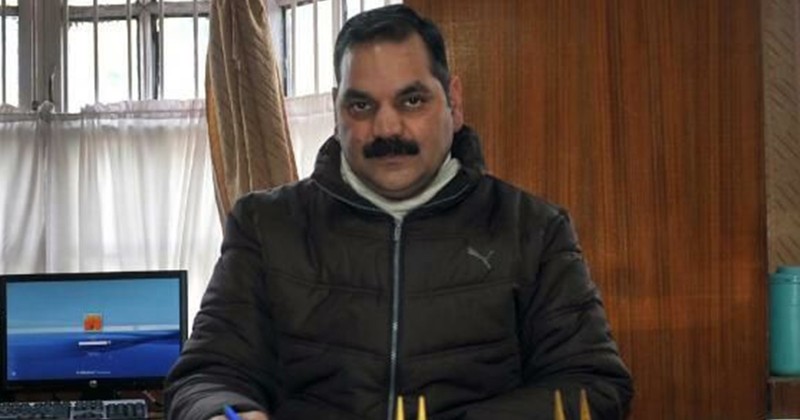Himachal doctor gets Padma Shri for research on rabid dog bite
IANS Jan 28, 2019
Field epidemiologist Omesh Kumar Bharti from Himachal Pradesh will be conferred with the Padma Shri award for his path-breaking research to treat rabid dog bite patients, which the World Health Organization (WHO) has recommended as one of the least expensive therapies in the world.

Bharti, who is currently posted at the Institute of Health and Family Welfare, said his research had brought down the cost of dog bite treatment from Rs 35,000 to Rs 350. His cost, time and lifesaving treatment protocol for rabies prophylaxis was recommended by the WHO in 2018.
The revised guidelines of the WHO on rabies prophylaxis referenced Bharti's research work that he had carried out at the Intra Dermal Anti-Rabies Clinic and Research Centre of the Deen Dayal Upadhyay Hospital in Shimla. "It is a pleasant surprise for me and a great recognition for research to make lifesaving treatment affordable," Bharti told IANS on January 26.
"I am thankful to the government. The recognition will certainly encourage the researchers in medicine field to work on low cost lifesaving treatment in the interest of the poor patients." The doctor said he did all the research work with the support of the state health department and in collaboration with WHO-accredited rabies research centre and the National Institute of Mental Health and Neurosciences (NIMHANS) in Bengaluru.
As per earlier WHO guidelines, a dog or monkey bite victim was administered a vaccine intradermally along with rabies immunoglobulins that was injected both in the wound and muscle. The rabies immunoglobulins were calculated as per the patient's body weight, which was a costly proposition.
While the vaccine part almost remains the same, the WHO's new update, as per Bharti's research, involves injecting rabies immunoglobulins only in the wound. The rabies immunoglobulins neutralise the rabies virus in the wound within hours. The omission of rabies immunoglobulins administration intramuscularly would drastically reduce the cost of treatment and will have a huge impact globally by sparing the overall cost, medicine and thus saving lives, Bharti said.
At present over $1.6 billion is annually spent on the rabies post-exposure prophylaxis across the globe, which is likely to decrease as over 90 per cent of this cost is attributed to rabies immunoglobulins to be given as per the earlier WHO protocol that came in 1992. Around 59,000 persons die of rabies globally every year, out of which 20,000 deaths are reported in India alone.
Most of these deaths occur due to high costs and unavailability of the medicine. The WHO update is based on recommendations of its Strategic Advisory Group of Experts committee, which met in Geneva in October 2017 and quoted Bharti's research papers, co-authored by late S.N. Madhusudana, head of the WHO Collaborating Centre on Rabies Research in NIMHANS, and Henry Wilde, a WHO consultant in Thailand.
"We started practical research on administering rabies immunoglobulins in wound only in 2014 amidst acute shortage of this lifesaving medicine, with technical support of WHO Collaborating Centre on Rabies Research in NIMHANS," Bharti said. "We administered the anti-rabies vaccine intradermally as earlier along with local rabies immunoglobulins infiltration into wounds. We found that even the lab confirmed rabid dog bite victims survived without any adverse impact."
It took 17 years for Bharti to conceptualise and implement the practical work in 2014, based on available literature review. Annually, the Intra-Dermal Anti-Rabies Clinic and Research Centre in Shimla gets more than 3,000 animal bite patients and 40 per cent of them involve monkeys. All the rabies prophylaxis is given free at the research centre, based on this new low cost protocol started in 2014, which has now been endorsed by the WHO.
For more information on rabies treatment, read Dr. Bharti discusses his WHO-notified low cost rabies treatment protocol.
-
Exclusive Write-ups & Webinars by KOLs
-
Daily Quiz by specialty
-
Paid Market Research Surveys
-
Case discussions, News & Journals' summaries